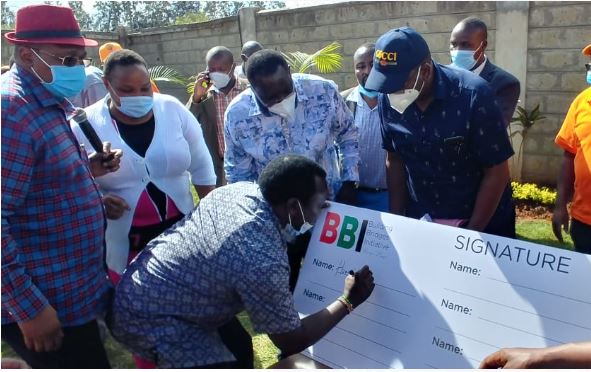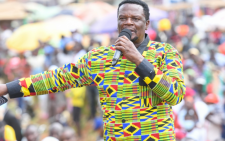Issue-based strategy needed in the BBI contest

I’ve been following the music scene since the Jerusalema track became a global spectacle.
It is interesting how the trend of globalising the local and localising the global, glocalisation, has gained traction.
Musicians from different parts of the world seem to have bought into this corporate culture cliché, customer is the king.
Today, Koffi Olominde is in Tanzania, working with Tanzania’s Diamond Platinumz, in what is poised to help both cement their status and expand their popularity beyond their current markets.
The other strategy that musicians have used to thrust themselves to prominence is the infusion of political sub-plots in their music.
As President Uhuru Kenyatta and Raila Odinga launched the Building Bridges Initiative (BBI) signatures collection drive, I received this benga track by a musician whose message is rallying Kenyans to support the BBI.
My point is not the music; it is the message that musicians and many of us purvey on different platforms.
The truth is, we are all content producers of sort, and majority of us on social media and other digital platforms, are reaching out to majority.
Therefore, we cannot just behave like musicians trying to reach a large audience with our good messages clothed in some emotional or ethical appeal. No. At least not in our current body polity.
In fact, in the mediatised world that we live in, we need to not only spread our opinions and positions on issues, but get into the trenches, dig deep and tell the whole world what underpins our position on issues.
If you have a position on something, be bold to articulate why as many people as possible should buy into your position.
Take the BBI for instance. Many voices out there are talking about what BBI is and what it is not.
Shouting ourselves hoarse, will not help and it is instructive for those who have a position to go ahead and articulate their ideas on BBI and rally support for their stand.
It is the only way out because the path is clear to a referendum. In a political process, there is always a contest.
Even if all political leaders hold the same position, we owe it to ourselves to articulate why we are supporting or rejecting BBI by unpacking the critical issues.
Take the issue of the number of Members of Parliament . While many of us are quick to talk about the top ups taking the number of MPs to some imaginary figures, we need to look at the bigger picture.
First, we will have 50 women in Parliament, courtesy of the 47 senators and three nominated women representing People living with disabilitioes and the youth.
Then, political parties will be required by law, to submit gender compliant list with no one gender being more than two thirds.
This simply means that the electorate will have more say in how many top ups we are going to have.
The logic is simple, with many women candidates in the political parties’ nomination list, the onus will be on us, the voters, to make Parliament two/third rule compliant without top ups.
Just vote in more women with distinguished leadership prowess and the reality of paying many MPs nipped at the bud.
Finally, we are on the cusp of dealing with the issue of politicians nominating their cronies and girlfriends, because the top ups will only be from a pool of competitive political players who contest in the elections.
And the clincher remains – equitable representation which comes with more constituency development money, that is now entrenched in the Constitution, to address development inequalities at the grassroots. — hesbonhansen@gmail.com












